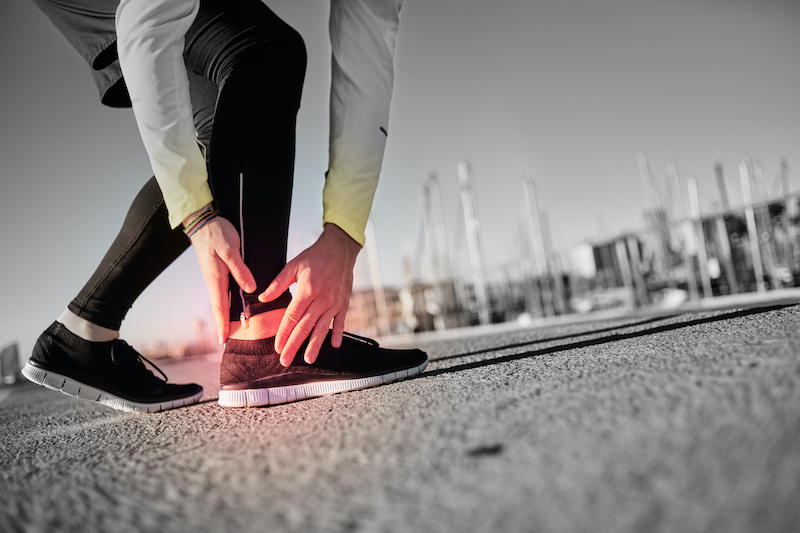Sleep is one of the most valuable tools that we have in our toolkit for overall health and wellness. However, good quality sleep is also one of the first things to be sacrificed when we have a lot on our plates.
I know that you know that sleep is important. But, let’s dive into some of the ways that not sleeping well, or enough, can create a domino effect on your whole day, impacting not only your mood, but your focus, performance, and nutrition.
Key benefits of getting enough sleep
Research shows 7-9 hours of sleep per night is a “sweet spot” to get into your deep sleep cycle (REM or rapid eye movement). (1) This allows for healthy, happy, hormone production, fostering an environment to better manage energy, immunity and muscle growth and repair. (2) Sleep is such an important aspect to our overall physical and mental health, not to mention performance.
However, our busy lifestyles and technology make it challenging to get those Zzz’s.
Our attachment to our devices means that we are consistently stimulating not only our brains (as we scroll, whether for work or enjoyment) but also our hormones, and the intrinsic systems that signal to our bodies that it is time to shut down and begin the process of readying for sleep. The sensory input from the images we consume, as well as the blue light emitting from our devices can be super disruptive to our sleep.
How does poor sleep affect your performance?
Poor sleep can affect your mood profoundly. The two are closely connected. In fact, University of Pennsylvania researchers found that subjects who were limited to only 4.5 hours of sleep a night for one week reported feeling more stressed, angry, sad, and mentally exhausted.(3) When the subjects resumed normal sleep, they reported a dramatic improvement in mood. So, if you find yourself struggling with any of those negative feelings, perhaps checking into your sleep quantity and quality is worth examining. The National Sleep Foundation has excellent resources, including sleep diaries, which can be helpful to gain insight into sleep habits.
If you aren’t sleeping well, aside from the previously discussed metabolic and mood disruptions, you likely don’t have the energy to perform at your best.
By identifying sleep problems and following the recommended sleep guidelines, you can begin to improve performance. According to Gatorade Sport Science Institute, “there are a number of other biological functions that can be altered following sleep deprivation. Changes in glucose metabolism and neuroendocrine function as a result of chronic, partial sleep deprivation may result in alterations in carbohydrate metabolism, appetite, food intake, and protein synthesis. Ultimately, these factors can all negatively influence an athlete’s nutritional, metabolic and endocrine status and hence potentially reduce athletic performance.” (4)
Poor sleep habits can affect your nutrition.
As those sleep-deprived dominoes continue to fall, the natural consequence of tiredness, poor performance and crabby mood is that you will begin to notice yourself lagging in other areas of your day. Perhaps you find yourself scrambling to complete tasks or fit in obligations that you are delayed on because your focus is not optimal. However, one area that often gets left behind is nutrition. If you are exhausted, the last thing you are thinking about is planning and preparing nutritious meals for yourself. However, missing meals or choosing meals that don’t support your overall health or goals can actually compound the issues experienced by those who are in a sleep deficit. Sleep and nutrition, much like sleep and many other bodily systems that work to maintain homeostasis, have a complicated and interconnected relationship.
Fortunately, it is possible to make some small, sustainable changes tonight that will start you on the path to improving your sleep.
Good sleep hygiene, including a consistent bedtime routine, set (or as close to set as possible) sleep and wake times, maintaining an optimal sleep environment (cool, quiet and dark), avoiding social media/using your devices for 1 hour prior to bed, not exercising or consuming caffeine within a few hours of bedtime, relaxation techniques and avoiding blue lights for 30-60 minutes prior to bedtime can all help to create an optimal environment for accessing that sleepy sweet spot with ease. (5) And, if you must be on your device prior to bed, give blue light blocking lenses a try! They can help reduce eye strain and the effects of exposure to your screen.
Do you feel like you have all your sleep dominoes in a row?
If not, I’d love to chat about how we can look at nutrition and sleep to improve your overall wellness together!
Resources:
- Waterhouse J, Atkinson G, Edwards B, Reilly T. The role of a short post-lunch nap in improving cognitive, motor, and sprint performance in participants with partial sleep deprivation. J Sports Sci. 2007 Dec;25(14):1557-66. doi: 10.1080/02640410701244983. PMID: 17852691.
- Doherty R, Madigan S, Warrington G, Ellis J. Sleep and Nutrition Interactions: Implications for Athletes. Nutrients. 2019 Apr 11;11(4):822. doi: 10.3390/nu11040822. PMID: 30979048; PMCID: PMC6520871.
https://www.usada.org/athletes/substances/nutrition/fluids-and-hydration/ - 3. Dinges, D. et al., Cumulative Sleepiness, Mood Disturbance, and Psychomotor Vigilance Decrements During a Week of Sleep Restricted to 4 – 5 Hours Per Night, Sleep. 1997 Apr; 20 (4): 267–277.
- 4. Halson, S. (2017, July). Sleep and athletes. Gatorade Sports Science Institute. Retrieved January 20, 2022, from https://www.gssiweb.org/sports-science-exchange/article/sse-167-sleep-and-athletes
- 5. National Center for Chronic Disease Prevention and Health Promotion, Division of Population Health. (2016, July 15). CDC – Sleep Hygiene Tips – Sleep and Sleep Disorders. Retrieved January 9, 2022, from https://www.cdc.gov/sleep/about_sleep/sleep_hygiene.html






